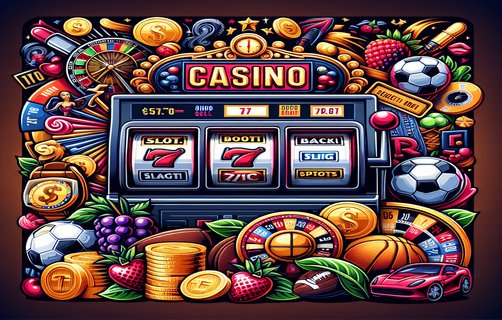The Intricacies of Freecell: A Strategic Analysis
फ्रीसेल के जटिलताएँ: एक सामरिक विश्लेषण
Freecell is more than just a card game; it is a complex system where event randomization, decision-making, and scorekeeping intertwine to create a rich gaming experience. At its core, Freecell uses a single deck of cards shuffled randomly at the beginning of each game. This randomization sets the stage for every play through unpredictable distributions, challenging players to engage with their cards strategically. Each game begins with 52 cards dealt into eight columns, with the ultimate goal of moving all cards to the four foundation piles. Here, decision-making becomes critical as players must analyze their available options with each turn, contemplating possible moves not just for immediate gains but also for future card placements.
A crucial aspect of Freecell is the scoring system, which typically rewards players based on their speed and the number of moves made. The scorecards reflect both successes and areas for improvement, prompting players to strategize their gameplay more effectively over time. Efficient moves are rewarded, and high scores motivate continuous play and skill enhancement.
Deck reshuffling rules play a significant role in maintaining game integrity. In most scenarios, players cannot reshuffle cards once the game begins. This rule emphasizes the importance of foresight and strategic planning since players must adapt their strategies based on how the game unfolds. Players are encouraged to think multiple moves ahead, using free cells intelligently to temporarily hold cards while they maneuver other cards into position.
The idea of random zone boards introduces an additional layer of complexity. Every game can present different layouts, and understanding these layouts can significantly enhance strategic decision-making. Each configuration requires players to adapt their approach, examining which cards in specific zones allow for optimal progression toward the goal. Engaging with these unique zone dynamics adds depth to the freecell experience.
Within every game session, players also use counters to track their progress and refine their strategies over time. These counters not only indicate moves but can also track high scores, average times, and other metrics that inform players about how they can improve their gameplay.

Lastly, the priest concept—though metaphorical—speaks to the player's role in executing strategy. Players are the architects of their fate in Freecell, wielding not only the cards but also their decisions as they navigate through challenges. They become 'priests' of their choices, invoking critical thinking at every turn. The blend of these elements makes Freecell a game that transcends mere luck, transforming players into skilled strategists capable of overcoming even the most challenging of hands.
फ्रीसेल सिर्फ एक कार्ड खेल नहीं है; यह एक जटिल प्रणाली है जहाँ घटना यादृच्छिकता, निर्णय लेना, और स्कोर रखना एक समृद्ध गेमिंग अनुभव बनाने के लिए एकीकृत होते हैं। इसकी मूल में, फ्रीसेल का उपयोग एक ही डेक के कार्डों का किया जाता है जो हर खेल की शुरुआत में यादृच्छिक रूप से मिलाया जाता है। यह यादृच्छिकता हर चाल के माध्यम से अप्रत्याशित वितरण सेट करता है, खिलाड़ियों को अपनी कार्डों के साथ रणनीतिक रूप से जुड़ने के लिए चुनौती देता है। हर खेल 52 कार्डों को आठ कॉलमों में वितरित करके शुरू होता है, जिसका लक्ष्य सभी कार्डों को चार बुनियादी ढेरों में स्थानांतरित करना होता है। यहाँ निर्णय लेना महत्वपूर्ण हो जाता है क्योंकि खिलाड़ियों को हर बारी में अपनी उपलब्ध विकल्पों का विश्लेषण करना होता है, तात्कालिक लाभ के लिए संभावित चालों पर विचार करते हुए भविष्य के कार्डों के स्थानों के लिए।

फ्रीसेल का एक महत्वपूर्ण पहलू स्कोरिंग प्रणाली है, जो आमतौर पर खिलाड़ियों को उनकी गति और बनाए गए चालों की संख्या के आधार पर पुरस्कृत करती है। स्कोरकार्ड सफलताओं और सुधार के क्षेत्रों को दर्शाते हैं, जिससे खिलाड़ियों को समय के साथ उनकी गेमप्ले को अधिक प्रभावी ढंग से रणनीतिक बनाने के लिए प्रेरित किया जाता है। प्रभावशाली चालों को पुरस्कृत किया जाता है, और उच्च स्कोर लगातार खेल और कौशल विकास को प्रेरित करते हैं।
डेक के पुनर्गठन के नियम गेम अखंडता बनाए रखने में महत्वपूर्ण भूमिका निभाते हैं। अधिकांश परिदृश्यों में, खिलाड़ियों को खेल शुरू होने के बाद कार्डों को पुनः मिलाने की अनुमति नहीं होती। यह नियम पूर्वदृष्टि और रणनीतिक योजना के महत्व को उजागर करता है क्योंकि खिलाड़ियों को उस तरह से अपनी रणनीतियों को अनुकूलित करने की आवश्यकता होती है जैसे जैसे खेल आगे बढ़ता है। खिलाड़ियों को कई चालों को आगे सोचने के लिए प्रोत्साहित किया जाता है, बुद्धिमानी से स्वतंत्र कोशिकाओं का उपयोग करते हुए कार्डों को अस्थायी रूप से रखने के लिए जबकि वे अन्य कार्डों को स्थिति में लाते हैं।
यादृच्छिक क्षेत्र बोर्डों का विचार अतिरिक्त जटिलता की परत जोड़ता है। प्रत्येक खेल विभिन्न लेआउट प्रस्तुत कर सकता है, और इन लेआउट को समझना रणनीतिक निर्णय लेने को महत्वपूर्ण रूप से बढ़ा सकता है। प्रत्येक संरचना खिलाड़ियों को अपने दृष्टिकोण को अनुकूलित करने की आवश्यकता होती है, यह देखने के लिए कि विशेष क्षेत्रों में कौन से कार्ड सबसे अच्छे तरीके से लक्ष्य की ओर प्रगति की अनुमति देते हैं। इन अद्वितीय क्षेत्र गतिशीलताओं के साथ संलग्न होना फ्रीसेल के अनुभव में गहराई जोड़ता है।
हर खेल सत्र में, खिलाड़ी अपनी प्रगति को ट्रैक करने और समय के साथ अपनी रणनीतियों को परिष्कृत करने के लिए भी काउंटरों का उपयोग करते हैं। ये काउंटर न केवल चालों को दर्शाते हैं बल्कि उच्च स्कोर, औसत समय, और अन्य मैट्रिक्स को ट्रैक कर सकते हैं जो खिलाड़ियों को बताते हैं कि वे अपनी गेमप्ले को कैसे सुधार सकते हैं।
आखिरकार, पादरी का सिद्धांत—हालांकि रूपात्मक—खिलाड़ी की रणनीति का निष्पादन करने की भूमिका पर बात करता है। खिलाड़ी फ्रीसेल में अपनी किस्मत के वास्तुकार होते हैं, केवल कार्डों का उपयोग नहीं करते हैं बल्कि अपने निर्णयों को भी उपयोग करते हैं जैसे कि वे चुनौतियों के माध्यम से नेविगेट करते हैं। वे अपने विकल्पों के 'पादरी' बन जाते हैं, हर बारी पर महत्वपूर्ण सोच को लागू करते हुए। इन तत्वों का मिश्रण फ्रीसेल को एक गेम बनाता है जो केवल भाग्य से परे चला जाता है, खिलाड़ियों को कुशल रणनीतिकारों में बदलता है जो सबसे चुनौतीपूर्ण हाथों को भी पार कर सकते हैं।

comments
CardWizard
This analysis really breaks down the strategy behind Freecell! I’ve learned a lot about decision-making.
PlaySmart
I appreciate the explanation of the scorecards. I never knew how important they were!
ShuffleMaster
The concept of random zone boards intrigued me. It adds a new layer to the game.
StrategistJimmy
Great insights on deck reshuffling rules! It’s fascinating how it impacts gameplay.
GameWise
Definitely gonna apply these strategies in my next game! Thanks for the tips!
LuckyDraw
I never thought of myself as a 'priest' in the game. Such a cool metaphor for decision-making!